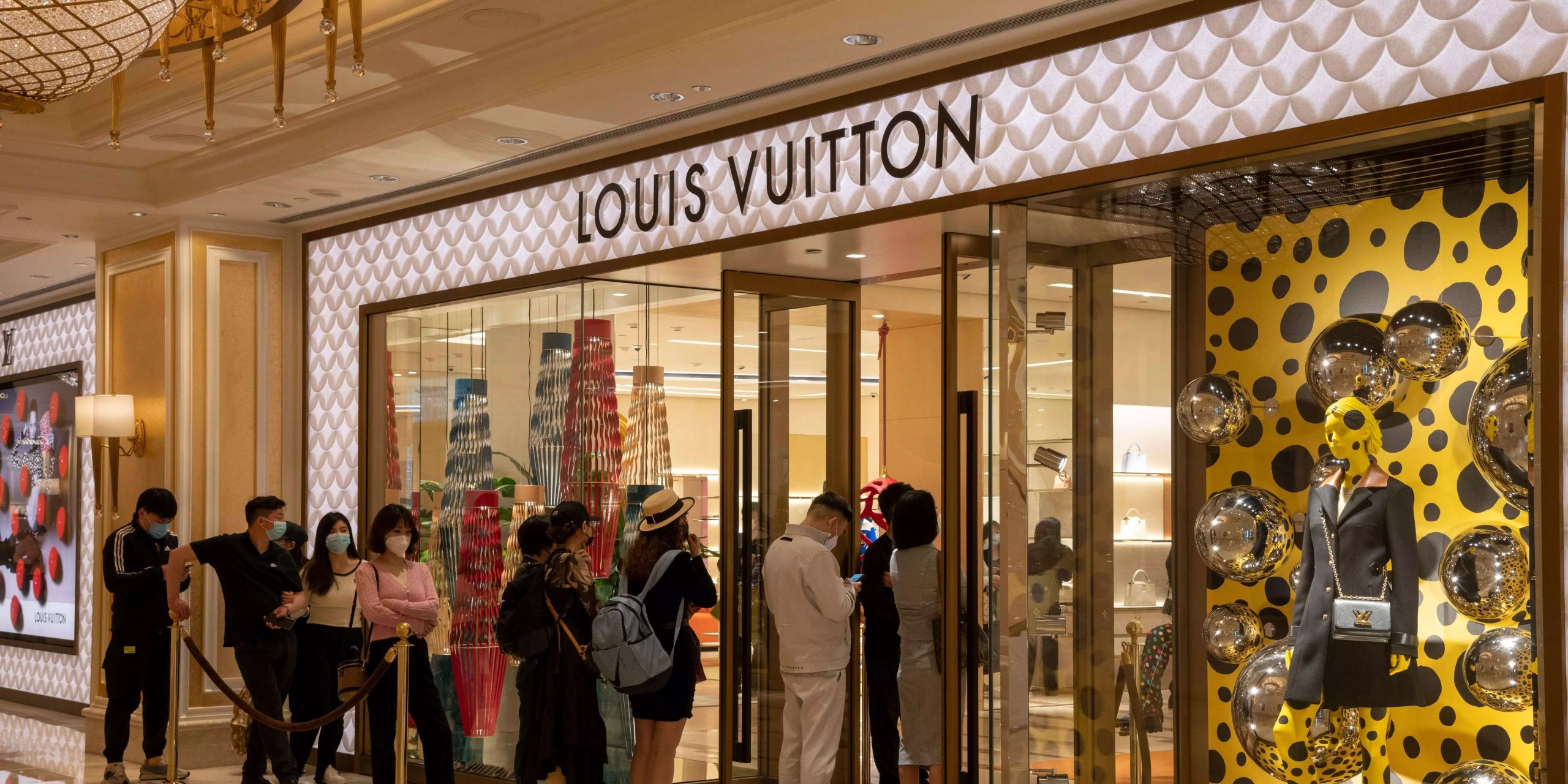The era of extravagant luxury spending appears to be coming to an end as consumers scale back their purchases of high-end goods. This shift is evidenced by the sharp decline in LVMH stock, which has fallen approximately 20% over the past six months.
Luxury retailers, which have enjoyed significant profits in recent years, are starting to feel the impact of tightening financial conditions and a decrease in ultra-high-end purchases. The decline in LVMH stock reached a new low in trading in Paris, dropping to 675 euros after the company reported weaker than expected quarterly revenue growth. Although sales still grew by 9% in the quarter, this figure is significantly lower than the prior three months’ increase of 17%. LVMH’s decline in stock value has also contributed to a collective loss of $245 billion in value from Europe’s seven largest luxury firms, according to Bloomberg.
DataTrek co-founder Nicholas Colas suggests that the significant slowdown in LVMH’s revenue growth may signify the end of a global luxury bubble. Investors have become accustomed to the company generating strong double-digit top-line increases, making this news all the more striking.
Bank of America card data indicates that luxury fashion card spending in the US has been on a steady decline for six consecutive quarters. In the past quarter alone, luxury fashion spending plummeted by 16% year-over-year. Additionally, luxury brands in the S&P 500, such as Tapestry and Ralph Lauren, have also experienced considerable declines in 2023. Bank of America estimates that luxury stocks overall have dropped by 17% from their most recent peak.
Previously considered “recession-proof,” luxury brands are now finding it challenging to rely on high-income consumers to sustain profits during uncertain economic times. China’s economic struggles have played a significant role in this shift, as consumers in the country, who were once substantial buyers of US and European luxury items, are now cutting back due to a range of economic problems, including sluggish consumer demand.
Furthermore, experts warn that Americans’ resilient spending habits may be on the verge of reversing course. As student loan payments resume and shoppers exhaust the excess savings they accumulated during the pandemic, the potential impact on retail stocks becomes a concern. The San Francisco Fed predicted earlier this year that US consumers would deplete their savings by the end of the last quarter.
However, amidst the decline in luxury brand shares, the US tech sector may benefit. European investors often view tech stocks as competitors to luxury stocks in their portfolios. According to Colas, tech stocks are experiencing a wave of investor excitement as firms enter an arms race in the field of artificial intelligence. Unlike luxury brands, which predominantly offer similar products at high price points, tech constantly creates innovative products across various price ranges.
Colas adds that the tech, healthcare, and luxury retail sectors have been among the few true growth industries in recent years. With luxury brand stocks stumbling and healthcare better suited for defensive plays, tech stocks remain the obvious option for investors seeking growth opportunities.

I have over 10 years of experience in the cryptocurrency industry and I have been on the list of the top authors on LinkedIn for the past 5 years.

